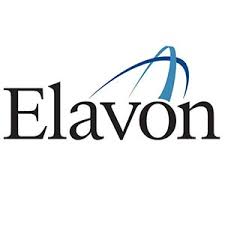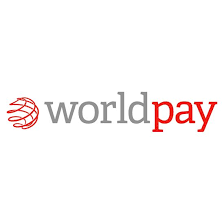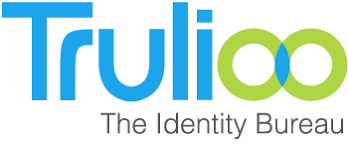Published
- 08:00 am

Elavon, a leading global payments provider and subsidiary of U.S. Bancorp (NYSE:USB) today announced a strategic deal with bpost, Belgium’s leading postal operator, to provide payment services across over 650 locations.
bpost employs 34,000 people worldwide and handles six million payment transactions per year at around 650 post offices serving the entire Belgian territory.
Elavon implemented payment services at bpost’s office branches in six months; it used existing point-of-sales and electronic cash registers to offer a flexible, customised payments solution. The company’ deployment supported bpost’s accountancy and infrastructure setup meeting their requirements for a successful deployment. Elavon processes 500k customers per year on a single payments platform with 99.98% reliability.
Elavon has a wealth of experience in Europe facilitating payments for governments, municipalities and the public/private sector. The company manages council and motor tax as well as revenue payment services in Ireland and expedites payments for Poland’s aviation and transportation department.
Hannah Fitzsimons, EVP and General Manager, Elavon Merchant Services, “The bpost agreement represents our first-ever government services contract in the Benelux market. The deal is due to our expertise in meeting the unique needs of the public sector across Europe. Furthermore, our singular payments platform is well-suited to support bpost with their growth strategies.”
Related News
- 07:00 am

NEXT Biometrics (Oslo Bors: NEXT), a global leader in fingerprint sensor technology, today announced the company is joining with MK Group to launch an R&D program for biometric smart cards for banking and other applications.
“As the industry moves toward biometric solutions for card-based transactions, companies like MK Group are leading the way toward accelerating this trend,” said Alain Faburel, NEXT Biometrics’ chief sales and marketing officer. “We’re very pleased to have our technology considered for MK Group’s future product lineup. This is yet another strong affirmation of the core advantages NEXT is bringing to the smart card segment with our large-area, flexible sensors.”
MK group intends to include biometric solutions in its future products and has selected NEXT’s One Touch Flex CT-150 sensors for use in trials to evaluate contact-based biometric smart card technology. The NEXT One Touch Flex CT-150 is a flexible, large-area sensor designed specifically for biometric smart cards.
“As a leader in smart card technology, incorporating the security and convenience of biometrics in our products is a natural next step forward for MK Group,” said Nguyen Trong Khang, Chairman and CEO, MK Group. “We look forward to working with NEXT Biometrics on this project to share the benefits of advanced fingerprint sensor technology with our customers.”
NEXT technical and sales teams are currently working closely with MK Group on the biometric smart card project, which is expected to begin in the near future. Today’s announcement marks an additional advance in the pace of smart card deployment following recent news from NEXT regarding availability of a biometric smart card reference design that allows for expedited development of smart card products.
Related News
- 05:00 am

Leading global payment technology providers Worldpay, Inc. (NYSE: WP;LSE: WPY) and Paysafe Group (Paysafe) announced today a new strategic partnership, with sights set on establishing an industry-leading standard in iGaming and Sports Betting digital payments acceptance and security in the United States (U.S.).
The partnership will enable seamless transactions, reduce operating costs and allow universal payment acceptance, leveraging Worldpay's deep sector expertise and optimized credit card processing, fast-fund payouts, and a range of treasury and payment solutions – alongside Paysafe's proven online gambling and gaming digital payment options, including its popular NETELLER digital wallet and paysafecard, its award-winning online cash solution.
iGaming is in a phase of significant growth after the U.S. Supreme Court put the legislative power to authorize sports gambling in the hands of states earlier this year. The potential market opportunity for iGaming in the U.S. is massive. According to the American Gaming Association the sports betting market in the U.S. is forecast to be worth $150 billionin gross online and offline gaming revenue and could become the largest sports betting market in the world.1
"Through this partnership, Worldpay and Paysafe will be able to champion the needs of U.S. iGaming operators and their players by providing a secure, cost-effective and highly configurable payments platform that delivers an unparalleled player experience," said Joel Leonoff, President and CEO at Paysafe Group. "Our innovative approach means we can support all transactions, no matter how the player wants to pay. We're very excited to once again get behind a new and growing sector."
Combining Paysafe's and Worldpay's capabilities in the Gaming sector will ultimately help to boost the player's payment choices leading to better conversion and retention. Through the creation of this breakthrough solution, the two leaders will provide seamless connectivity, via a single point of integration, to wide-ranging payments solutions and services such as credit card processing, digital wallets, cash payment solutions, ACH and near instant push-to-card payouts tailored for the U.S. market.
"As a leading payments provider for iGaming companies, state lotteries and land-based casinos, Worldpay is excited about the enhancements this partnership will bring when it comes to maximizing payment acceptance, enabling new digital wallets, as well as minimizing fraud risk and lowering cost," said Shane Happach, EVP, Head of Global Enterprise eCommerce for Worldpay. "Our combined strengths and capabilities will simplify payments for gaming operators, while also continuing to show our attentiveness to responsible gaming and our mission to protect the integrity of every transaction."
Related News
- 02:00 am

Lendingblock, the securities lending platform for digital assets, today announces the Gibraltar Financial Services Commission (GFSC) has made an in-principle decision to grant the firm authorisation as a Distributed Ledger Technology (DLT) provider.
The in-principle authorisation comes simultaneously with Lendingblock’s successful completion of its platform testing period conducted with over 30 institutions worldwide. This puts the firm well on track to launch the world’s first institutional digital assets lending exchange as a fully regulated DLT provider early in the new year.
Steve Swain, CEO and co-founder of Lendingblock commented: “As a true believer in the importance of getting our industry into regulatory shape, seeking authorisation from a leading regulator was always a priority for us. The GFSC has developed one of the most advanced DLT regulatory frameworks in the world and this in-principle decision is a tremendous achievement.”
Following this in-principle decision and the successful testing period, the Lendingblock platform is open for institutional onboarding in preparation for launch. Market participants are now able to sign up for access and will be able to commence borrowing and lending BTC, ETC, BCH and LTC across various maturities from early next year.
“Securities lending is an important aspect of most traditional market participants’ return generating strategy and we see it as a particularly relevant to the crypto economy. Our technology and collaborative work with regulators and partners has enabled us to create the market and financial infrastructure needed to meet the demand for trading digital assets on an institutional level,” added Steve Swain.
Lendingblock continues to collaborate closely with the GFSC as it works towards being granted the full DLT licence. The firm is also in discussion with several other regulators globally to ensure that the exchange meets its strategic aim to operate on a duly licenced basis for all territories in which it operates.
Related News
- 04:00 am

Hogan Lovells has advised Monzo, the UK's digital, mobile-only bank, on its biggest ever crowdfunding round. Monzo has just published a prospectus in connection with a £20 million raise from its existing customers. This follows the close of £85m of funding in October this year from General Catalyst, Accel and existing investors, which Taylor Wessing advised on.
The Hogan Lovells team was co-led by London Corporate Partners Richard Diffenthal and Daniel Simons, working alongside Monzo relationship Partner Jon Chertkow, assisted by Nagham Al-Turaihi and Peter Finch. The Taylor Wessing team was led by corporate technology specialists, Adrian Rainey and Adam Thatcher.
Commenting, Richard Diffenthal said: "It's been a real privilege to support one of the UK's most dynamic and fastest growing companies – keeping up with the pace of change in the business has certainly kept us on our toes whilst putting together the prospectus. We were delighted to advise on this exciting deal which will see Monzo into its next stage of growth."
Adrian Rainey, partner and head of the corporate technology team at Taylor Wessing, said: “The pace of development at Monzo has been extraordinary since we worked on the company's first funding in 2015. We are delighted to continue to support Monzo, working closely with the excellent Dean Nash, Diana Milanesi and Andrew Macklin.”
Dean Nash, General Counsel and Chief Risk Officer at Monzo added "The Hogan Lovells and Taylor Wessing teams worked seamlessly alongside each other, bringing an efficiency of process to this substantial and complex deal which drew heavily on their market knowledge".
Related News
- 07:00 am

Australian Securities Exchange and Frankfurt Stock Exchange cross listed iSignthis Ltd (ASX: ISX | FRA: TA8) (the “Company”), is pleased to announce that it has completed its Tier 1 integration to access both Visa and Mastercard (“card schemes”) directly, per its previously announced timetable on 30th August, and will be imminently using its own Principal Member Bank Institution Number (BIN) for processing of card transactions within the EU/EEA.
Visa and Mastercard, are as of tomorrow, both switched to Tier 1 ‘production live’ by the card schemes, allowing direct processing by ISXPay under its own BIN, along with previously announced JCB. The combination of these three schemes alone represents a viable offering as an independent, standalone acquirer, and with our APMs and SEPA capability, will far exceed many EU payment companies’ capabilities. The upcoming addition of our other principal licensed payment channels, including Diners, Discover, China UnionPay and Amex, will further augment ISXPay’s offering and revenues from mid CY/FY2019, and positions the Company with a globally enviable choice of payment channels and capabilities.
The Company has previously announced that it contracted more than AUD$880m of merchant GPTV, to be processed during FY/CY2019 and beyond. ISXPay will shortly start to ramp merchant volumes up, without the restrictions it previously faced working with other payment service provider partners. The Company will however, maintain strategic partnerships with other payment service providers, in order to offer specialty services.
The Company expects that Gross Processed Turnover Volume (GPTV) will gradually be loaded to ISXPay over January and be at full GPTV monthly throughput by March 2019. The $880m annual GPTV will be subject to merchant and seasonal fluctuations during the course of the year, with some months performing stronger than others. GPTV volume ramping is non-linear accelerating post March 2019.
The Company is restating its EBIT guidance of ~AUD$10.7m for CY/FY2019.
The target MSF% of >100bps is sensitive to volume pricing discounts, but is also subject to increases for lower volumes or specialty merchants.
The “Merchant Services Fee (MSF)% x monthly processed GPTV” will be booked as gross profit each month, without any cashflow lag, as MSF is deducted at daily or weekly settlement to merchant. The Costs of Goods line will soon largely exclude the underlying percentage cost that has been payable to partner payment services providers during previous quarters for use of their networks.
Card Scheme Interchange fees will be collected and booked as revenue, and are payable to the card schemes by ISXPay per the terms of its Principal licenses, and do not contribute to gross profit.
The overwhelming majority of ISXPay’s merchants fall under MCC6211 (CFD/FX Brokers & Market makers), many of whom also utilise the PaydentityTM platform to meet their compliance requirements.
Consistent with our strategy of supporting the FX sector, ISXPay offers merchants a large range of acceptance and settlement currencies, including AUD, GBP, CAD, CHF, CZK, DKK, EUR, HKD, JPY, NZD, PLN, RUB, SGD, SEK, USD and ZAR, with acceptance in a further 150 odd currencies, settling in EUR.
Related News
- 04:00 am

EBANX, global fintech company that offers end-to-end local payment solutions from Latin America to global digital commerce merchants, announces the integration with local credit cards in Argentina. Websites that sell cross-border to the country can rely on EBANX solutions to reach all consumers that like to pay for online purchases using domestic credit cards.
Besides accepting local cash payments and payments made with credit cards from international schemes in Argentina, EBANX merchants will also be able to accept payments with credit cards from two major Argentinian local schemes – Cabal and Naranja.
Merchants that offer this option to their Argentinian consumers can see an increase in cross-border sales to the country. Over 80% of online consumers declared they like to pay for their purchases using credit cards, according to the annual study conducted by the Argentinian Chamber of Electronic Commerce (CACE).
Ecommerce in Argentina: An ever-evolving market
Argentina's ecommerce market is among the three fastest-growing ones in the world, according to Focus Economics. Internet and mobile penetration are among the main reasons for that. Over 63% of the Argentinian population is connected to the internet, according to Statista's data. By 2021, more than half of Argentinians are expected to have a smartphone, as shown by eMarketer.
In the first half of this year, ecommerce in Argentina grew 66%, compared to the same period of 2017, as reported by the Argentinian Chamber of Electronic Commerce. This means that the first half of the year, alone, generated almost $ 97.9 billion pesos, which corresponds to over $ 2.7 billion US dollars.
Cyber Monday, a three-days event that happened in October, generated over $ 7.2 billion pesos, almost $ 200 million US dollars. CACE reported a growth of 39% compared to 2017's edition of the shopping event.
Related News
- 09:00 am

Yesterday marked the six month anniversary of the momentous GDPR deadline – a period of time that has seen an exponential increase in the number of consumers wary of how, if at all, their personal data is being protected. Since the deadline, the French CNIL company has seen a 64 per cent increase in the number of privacy complaints[1]. Similarly, more than 1,100 reports of data breaches involving people’s personal information were received by the Data Protection Commission in just the first two months – a number that has gone up exponentially since then[2].
As consumers become increasingly aware of their rights under GDPR, the number of Subject Access Request (SAR) have also increased. An SAR is a written request made by an individual for the information an organisation holds on him or her.[3] The typical SAR demands a copy of all personal information, how it has been used, who it has been shared with, how long it has been stored and details of any data breaches. The consumer can also subsequently ask for the data held to be deleted.
As SARs can be requested by anyone, the last six months has also seen an increase in malicious actors using the guise of GDPR to steal personal data,[4] leaving businesses struggling to ensure the requests are authentic. Experts at Trulioo believe that organisations may have neglected adequately planning for the influx of SARs while setting out plans to adhere to the larger GDPR framework. As the volume of SARs have increased, managing these requests continues to be an under-examined blind spot of being GDPR compliant.
Zac Cohen, General Manager at Trulioo comments: “Once an SAR is made, organisations have one month to comply. However, before going to the extensive process of releasing or deleting a subject’s data, it is imperative for businesses to first determine that the request is indeed coming from the actual data subject.”
“While the number of requests for erasure has climbed since the introduction of GDPR, processing a fraudulent request and releasing or deleting data from the record has resulted in a completely different set of problems. To ensure the person making the SAR is who they say they are, companies can leverage identity verification services to authenticate individuals making the request.
In a haste to process SARs, many businesses have lost sight of the primary objective of the GDPR – the confidentiality of data. Wrongly disclosing confidential data is a data breach and the individual whose data was exposed could file for negligence.[5]
Zac concludes: “Considering businesses have only had a month to respond to a data subject’s deletion request, the faster and more automated the process, the easier it could be to comply with GDPR regulations smoothly and avoid the associated penalties and fines, which can run up to four per cent of company revenues.”
Related News
- 02:00 am

Third-generation trust-based multi-dimensional blockchain platform, YGGDRASH, has entered into a partnership with a blockchain powered open market remittance platform, REMIIT.
At the signing ceremony, representatives from both companies met to share and discuss the technology, vision and direction between the two companies. In particular, they focused on the overseas remittance sector within the ecosystem of YGGDRASH.
YGGDRASH is a South Korean project developing a blockchain platform that enables the blockchain experience in everyday life by solving the problem of speed and capacity. The YGGDRASH Project hosted its second meet-up in Seoul, South Korea on the 23rd. At the event, YGGDRASH announced the launch of an Incubation Center, which funds the growth of various dApps and various start-ups. Also announced was the establishment of a profit-sharing exchange.
REMIIT is a blockchain powered open market remittance platform that uses smart contract to reduce network complexity. The REMIIT Token is a unified stable token that lowers trust cost of transitions, which is much more advantageous solution compared to distributed IOU series. The REMIIT Project has developed deep research into the blockchain based remittances space and token economics. It will be holding an Initial Exchange Offering on Coinis at 10AM on the 27th of November.
CEO of YGGDRASH David Seo mentioned, "REMIIT's remittance platform is full of potential," and "I felt a great deal of interest in REMIIT's abundant operating know-how in the overseas remittance industry and high understanding of the overseas remittance market." He also stated, "We will strengthen the overseas remittance sector together with REMIIT in the YGGDRASH ecosystem. "
REMIIT's CEO, Stevie An on the partnership: "Following the partnership with the HYCON eco-system overseas remittance service agreement, the strategic business agreement with YGGDRASH and the monopoly agreement for overseas remittance have secured the competitiveness of REMIIT's overseas remittance platform," and that "We will actively exchange technology and business infrastructures owned by the two companies to create synergies, which will lead to the global success of the overseas remittance platform of REMIIT."
The potential to enable overseas remittances to significantly reduce the cost, complexity, and increase the speed of trading and settlement processes in a secure manner, has garnered interest from the biggest names in blockchain technology. The path to its adoption will require resolving issues in the distributed IOU systems which many blockchain remittance projects implement. However, despite the hurdles that lie ahead, REMIIT stands at the forefront by developing a fast adopting remittance platform. With the help of YGGDRASH, it is expected to expedite the development and bring in greater transparency and efficiency.
Related News
- 05:00 am

REGO Payment Architectures Inc., (OTCQB: RPMT) announced today the engagement of SKB Capital to act as its financial advisor for both the firm's capital requirements as well as its long-term corporate strategy to align with a major multi-conglomerate tech titan.
Suzanne E. Kecmer, CEO of SKB Capital, has a distinguished track record in both the cyber security and financial services sectors. REGO believes the engagement of SKB Capital will provide strategic and investment guidance the Company needs in order for its cutting edge patented COPPA compliant payment platform to be launched. "This engagement represents a significant milestone as we move forward to deploying a viable product and at the same time position the company for its corporate mission in launching the only COPPA compliant mobile payment platform for the 80 million 18 and under users who influence over $860 billion annually in spending. Suzanne's knowledge, experience and expertise in the cyber security market will ensure that the security protection that REGO has embedded in its platform will be well understood as a unique discriminator in the marketplace," confirmed David Knight, CEO of REGO.
"We look forward to partnering with REGO to appropriately capitalize and swiftly proliferate its world-class technology," said Suzanne E. Kecmer, CEO of SKB Capital.









